Kawa, Indonesia, 15 October 2024
Celebrating a New Chapter in Kawa’s Fisheries Sector
The International Pole and Line Foundation (IPNLF), in collaboration with the Indonesian office of the Deutsche Gesellschaft für Internationale Zusammenarbeit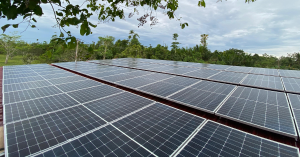 (GIZ-Indonesia) and the Ocean Innovation Challenge (OIC) of the United Nations Development Programme (UNDP) launched its Solar Ice Maker (SIM) facility in a remote fishing community in Kawa, Indonesia. This innovative technology will be a game-changer for the small-scale fishers who go to sea daily, catching sought-after tuna with their highly selective handline fishing gear. The improved quality of their catch, brought about by the ‘solar ice’, will help safeguard their livelihoods, improve local food security, and open up lucrative export market opportunities.
(GIZ-Indonesia) and the Ocean Innovation Challenge (OIC) of the United Nations Development Programme (UNDP) launched its Solar Ice Maker (SIM) facility in a remote fishing community in Kawa, Indonesia. This innovative technology will be a game-changer for the small-scale fishers who go to sea daily, catching sought-after tuna with their highly selective handline fishing gear. The improved quality of their catch, brought about by the ‘solar ice’, will help safeguard their livelihoods, improve local food security, and open up lucrative export market opportunities.
The Power of Ice: Uplifting Coastal Communities
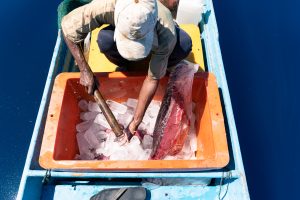 Indonesian handline tuna fisheries are more than just a source of fish; they are lifelines for local communities, fostering equitable wealth distribution, enhancing food security, and empowering women through gender-equal employment opportunities. However, many of these remote coastal fishing communities face significant challenges. They urgently need reliable access to electricity, improved skills in fish handling and food safety practices, modernisation of their fishing boats and upgrading of shore-based facilities to maintain a continuous cold chain for their catch. Maintaining this cold chain is critical to ensure that fish and other seafood products arrive fresh and of the highest quality at their destination.
Indonesian handline tuna fisheries are more than just a source of fish; they are lifelines for local communities, fostering equitable wealth distribution, enhancing food security, and empowering women through gender-equal employment opportunities. However, many of these remote coastal fishing communities face significant challenges. They urgently need reliable access to electricity, improved skills in fish handling and food safety practices, modernisation of their fishing boats and upgrading of shore-based facilities to maintain a continuous cold chain for their catch. Maintaining this cold chain is critical to ensure that fish and other seafood products arrive fresh and of the highest quality at their destination.
Furthermore, these small-scale fishers are often out-competed by industrial fisheries for limited resources,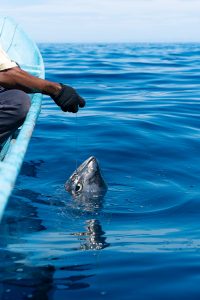 sidelined by decision-makers, and forced to compete in seafood markets that fail to offer them a level playing field. To add to their struggles, these communities are often on the front lines of climate change impacts, facing unprecedented challenges that threaten their livelihoods. Therefore, innovative solutions that combat climate change and help them compete on an equal footing in global seafood markets are essential for their future.
sidelined by decision-makers, and forced to compete in seafood markets that fail to offer them a level playing field. To add to their struggles, these communities are often on the front lines of climate change impacts, facing unprecedented challenges that threaten their livelihoods. Therefore, innovative solutions that combat climate change and help them compete on an equal footing in global seafood markets are essential for their future.
Improving Cold Chain Management for Enhanced Fish Quality and Market Access
The Solar Ice Maker project, which began as a prototype in 2022, is a monumental step in this direction. The technology operates entirely off-grid, using solar energy to produce up to one ton of high-quality ice per day. Thus, it allows for continuous ice production, enhances cold storage capabilities, and minimises spoilage. Access to fresh water is vital for the ice maker to operate efficiently. Replacing expensive batteries is often one of the most significant costs associated with solar energy applications. The technology used in the solar ice maker overcomes this challenge by relying on thermal energy storage rather than batteries.
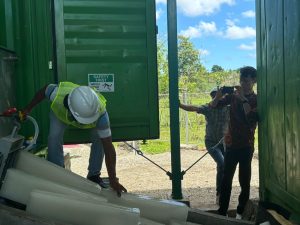 Supporting small-scale fishing communities is at the heart of IPNLF’s mission. With the continued support of local authorities and industry stakeholders, the Solar Ice Maker project will play a vital role in shaping the future of cold chain management and improving access to global markets for these remote Indonesian island communities.
Supporting small-scale fishing communities is at the heart of IPNLF’s mission. With the continued support of local authorities and industry stakeholders, the Solar Ice Maker project will play a vital role in shaping the future of cold chain management and improving access to global markets for these remote Indonesian island communities.
“Through this partnership with IPNLF under the UNDP Ocean Innovation Challenge, we are set to transform fishery supply chains and reduce carbon emissions in international supply chains. The solar ice maker technology is designed to meet Indonesia’s needs by providing 100% greenhouse gas emission-free ice for small-scale, coastal fishery communities and reducing post-harvest losses. This shows how the global energy transition can effectively meet local needs while preserving sustainable fishing practices and reducing carbon emissions.”
— Frank Stegmüller, Lead Industry Decarbonisation & Energy Island Solutions, Energy Programme, GIZ Indonesia/ASEAN
Alignment with Global Sustainability Objectives
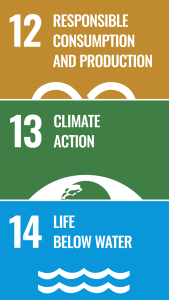 The Solar Ice Maker project supports Indonesia’s vision of a Blue Economy in which the ocean is a crucial driver of economic growth and innovation, improving the livelihoods of coastal communities while preserving the country’s unrivalled biodiversity through healthier oceans and coastal ecosystems. It contributes directly, amongst others, to SDG 12 (Responsible Consumption and Production), SDG 13 (Climate Action), and SDG 14b (providing small-scale fishers access to marine resources and markets). The technology used in the ice maker further minimises waste and aligns with global sustainability standards by reducing the carbon footprint of ice production.
The Solar Ice Maker project supports Indonesia’s vision of a Blue Economy in which the ocean is a crucial driver of economic growth and innovation, improving the livelihoods of coastal communities while preserving the country’s unrivalled biodiversity through healthier oceans and coastal ecosystems. It contributes directly, amongst others, to SDG 12 (Responsible Consumption and Production), SDG 13 (Climate Action), and SDG 14b (providing small-scale fishers access to marine resources and markets). The technology used in the ice maker further minimises waste and aligns with global sustainability standards by reducing the carbon footprint of ice production.
Trian Yunanda, Acting Expert Staff for Community Affairs and Inter-institutional Relations of Indonesia’s Minister of Marine Affairs and Fisheries (MMAF) applauded the achievement: “The future of our fisheries is closely linked to the welfare of small-scale fishers. By embracing innovation, fostering collaboration, and upholding sustainability principles, we can usher in a new era of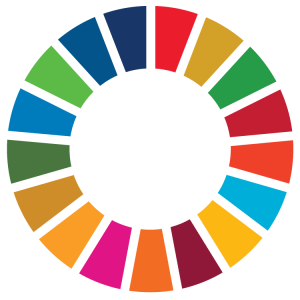 prosperity for Indonesia’s small-scale fishers and coastal communities. Innovation goes beyond technology; it also requires fostering partnerships and stakeholder collaboration. This collaboration between the government, NGOs, and the private sector exemplifies how renewable energy solutions can be integrated into the fisheries sector to address environmental and economic challenges. The project aligns with Indonesia’s broader national goals of reducing carbon emissions and promoting sustainable economic growth, particularly in remote coastal communities.”
prosperity for Indonesia’s small-scale fishers and coastal communities. Innovation goes beyond technology; it also requires fostering partnerships and stakeholder collaboration. This collaboration between the government, NGOs, and the private sector exemplifies how renewable energy solutions can be integrated into the fisheries sector to address environmental and economic challenges. The project aligns with Indonesia’s broader national goals of reducing carbon emissions and promoting sustainable economic growth, particularly in remote coastal communities.”
The Solar Ice Maker project goes beyond just environmental gains; it’s a powerful catalyst for social transformation, bringing real income stability to small-scale fishers. With improved cold chain reliability, these fishers can unlock the full value of their catch, minimise their financial losses and boost local economic growth. This initiative is an inspiring model for other coastal regions facing similar hurdles in cold chain logistics and post-harvest losses.
Shannon Hardisty, Social Responsibility Director of IPNLF, explains, “As simple as it may sound, ice is a crucial step in the supply chain to achieve a higher-quality product. With this innovation, fishers can nearly triple their income because of the higher-grade tuna they sell. Their product can be sold to international markets such as Japan and the USA with that grade, which means rural fishers can increase access to global markets and improve their livelihoods.”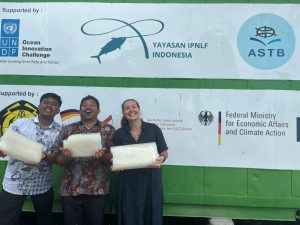
A Future of Opportunity
The launch of the Solar Ice Maker is potentially a game-changer for the seafood industry, philanthropic donors and climate-related investors alike, and could potentially be incorporated under “blue” bonds where bond issuance is linked to the SDG goals. This groundbreaking project showcases how responsible innovation can uplift small-scale fisheries, transforming socio-economic conditions in coastal communities while paving the way for a sustainable future in seafood production. With its solar-powered solution, the Solar Ice Maker is already turning heads among major players in the seafood sector. They recognise its potential to revolutionise traditional cold chain logistics, presenting both exciting opportunities for growth and a challenge to outdated practices.
Dr. Mary Matthews, UNDP Ocean Innovation Challenge Manager, echoed these sentiments: “We were looking for transformative, scalable, replicable projects to help with sustainable fisheries. It allowed the fishermen, the fisherfolk, to preserve their catch, so fewer catches had to be caught to get good quality catch to market. And to do it in an environmentally friendly way that’s met all the criteria. The wonderful thing about this is that we can make ice as long as the sun shines.”
Martin Purves, Managing Director of IPNLF, added, “Transitioning to renewable energy in the fisheries sector, especially in small-scale fisheries, can be a major achievement in the battle to address climate change impacts. The Solar Ice Maker not only strengthens local cold chain infrastructure but also represents a crucial investment in the future of sustainable small-scale fisheries. We are keen to work with our market partners, investors and the donor community to find scalable solutions that will help ensure long-term market access and improved economic resilience for small-scale fishers and their dependent coastal communities.”